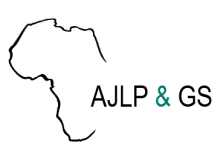Resource information
This study provides an understanding on whether land reform policies pursued by the government of Zimbabwe post-independence (1980) have an effect on the corruption in the land sector. Agriculture and corruption data from 2000 to 2017 were obtained from World Bank and Ibrahim Index of Governance website respectively. The Bai and Perron multiple structural break tests were employed to establish the break years. Structural breaks in time series assist in understanding factors affecting the dynamics of a series. Three breaks were found in agriculture series namely 2004, 2009 and 2011 while for corruption series one break was found in 2013. A negative effect was found in agriculture for break year 2011. We noted that Zimbabwe land policies were inefficient and unsustainable and left room for manipulation and corruption. We recommend technological innovation and adoption, inclusivity in policy formulation and political will in dealing with corruption in the land sector. Keywords:


